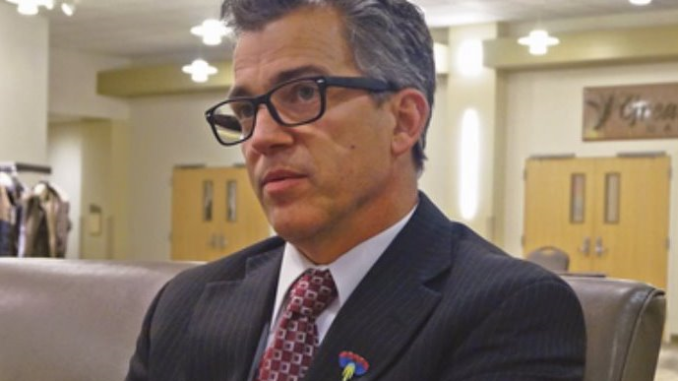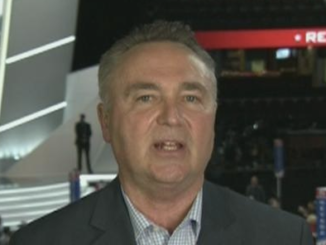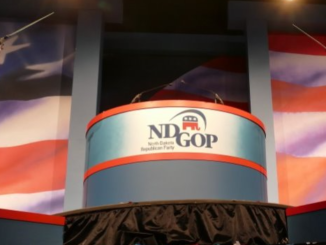
The following article was submitted by Rep. Rick Becker.
On June 18th The Minuteman Blog published an article of mine. The present article is effectively part two.
In the June 18th article, I explained Governor Doug Burgum’s appeal to Democrats as a progressive. Some would say RINO, but in this instance I prefer “Democratish-Republican”. The gist of the first article is that Doug Burgum’s appeal to Democrats is so great that in primary elections they willingly crossover for him and his endorsed candidates, rather than vote for Democrats. I pointed out the obvious, which is that this is bad for Republicans, because candidates who do not adhere, nor even agree with the Republican platform are elected, beating out those who very much believe in the platform. For those that don’t know of the platform, a condensed version is provided here:
1) Individual Liberty
2) Personal Responsibility (Dignity of the Individual)
3) Limited Government (Less Spending, Less Regulation)
4) Rule of Law without Burdens to Civil Liberties
5) Lower Taxes
6) Right to Bear Arms
7) Family Integrity
8) Education choice
9) Legislative Integrity (Legislate According to this Platform)
I also mentioned that in addition to harming the Republican party, Democrat crossover is a detriment to all North Dakota citizens, and most harmful of all to the Democrat party itself. These last two concerns are what I write about here.
Over the last few decades, the Republican party in ND has become a very “big tent” party, meaning that it has welcomed into it’s membership people along different points in a vast range along the political spectrum. Some say this is good; the more the better. Others, like Ronald Reagan, have said this isn’t good. Such a big tent facilitates a broader, weaker message. It leads to a vaguer notion of what limited government, frugal spending, and appropriate taxation means.
In much of North Dakota it is extremely difficult to be elected if you take on the designation of Democrat. What then occurs is people who normally fall outside of the political spectrum covered by the NDGOP platform take on the Republican designation to become elected. They bring with them their notion of governance which is not consistent with the party platform. In this manner the NDGOP has taken on a banner of pale pastels rather than bright bold colors (referring to Ronald Reagan’s 1975 speech).
The result of people taking on the Republican designation regardless of their political beliefs is that we have a nearly hegemonic North Dakota Republican party with a super majority in both legislative chambers, every single statewide elected office, and every seat in our US Congressional delegation. The ND Democrats meanwhile are marginalized and completely ineffective. In practical terms, North Dakota has a one-party rule. This is very unfortunate for North Dakota citizens. In a good two (or more) party system, voters can choose between opposing ideas that each deserve consideration, and each are clear in what they represent.
In North Dakota, we have the ruling party with a tent so big, that it’s very difficult to have consistent, clearly delineated ideas. Because the watered-down version of the Republican party covers so much ideological territory, the Democrats have extremely little territory to call their own. Rather than overlap the Republican’s more moderate positions that fairly represent many North Dakota citizens, they choose to expand their territory with leftist policies and identity politics. The choice most ND citizens have when voting, therefore, is between an “R” which could mean almost anything, and a “D” which is often limited to a tiny fragment on the extreme end of the political spectrum. As such, there is no opportunity for citizens to flesh out policy ideas. There is no chance to discuss the merits of “good idea A” represented by one party, vs “good idea B” represented by the other. This is a disservice to the people of North Dakota.
As far as the Democrat party goes, I frankly don’t understand why they play this game to their detriment. Why the party leaders and elected officials haven’t handled things in the manner I’m about to describe, I can’t say. Are they that politically inept? I don’t know. Again, the game I’m referring to is encouraging Democrat voter crossover in primary elections in order to advance the most progressive, “Democrat-ish Republican” to the general election, where it is presumed that the Republican candidate will win. I understand the short game: they foiled the Republican rank and file. They helped ensure that the victorious elected official will be more aligned with what they believe. Best of all, they stuck it to us gross conservatives.
But what about the long game? The Democrat party, by their own doing, has been relegated to complete insignificance. The longer-term consequence of their crossover tactic is that their insignificance is further cemented. Many citizens of North Dakota may be in agreement with several moderate progressive policies, but they don’t need to look to Democrats for them, because they can find them in select Republicans. The more commonplace that “Democrat-ish Republicans” are elected, the further into oblivion the Democrat party goes. If the Dems had any sense at all, they would either leave the Republicans to their own party, or they would actually crossover to help advance the most conservative candidates possible. The further to the right the Republican candidate, and the more adamant on conservative policies such as cutting spending and de-regulation, the brighter the line between the Republican and Democrat candidates. More ideological territory would go back to the Dems, and they would regain relevance.
So long as they continue to help progressive Republicans get elected, they work to their own disadvantage. Ironically, the more that strong conservative Republicans are elected, the more relevant the Dems will become in North Dakota.
Imagine that; a Republican party that moves to the right becomes a much stronger party, helps the opposition party to also become stronger, and creates an optimal political system to the betterment of all North Dakota citizens.
Rick Becker was first elected to serve District 7 in the North Dakota State House of Representatives in 2012. He is a plastic surgeon, business owner, and resides in Bismarck.
PLEASE LIKE & SHARE!
Sources:
- https://theminutemanblog.com/2020/06/18/rick-becker-burgum-democrat-crossovers-are-bad-for-republicans/
- https://www.youtube.com/watch?v=XJUlnNTen48





